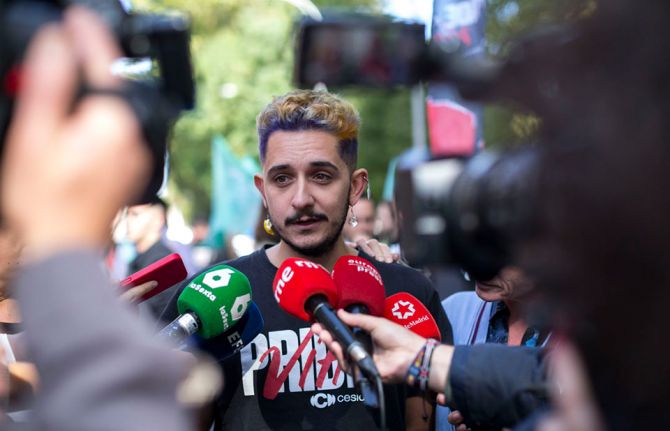
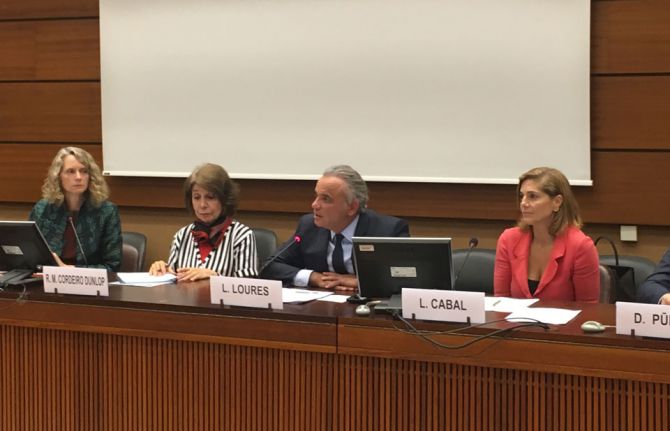
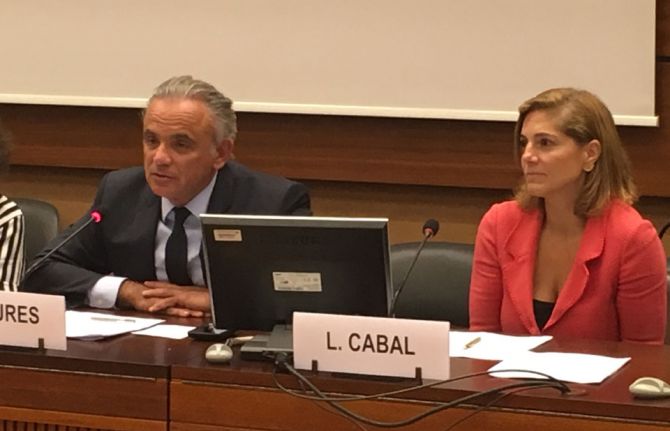
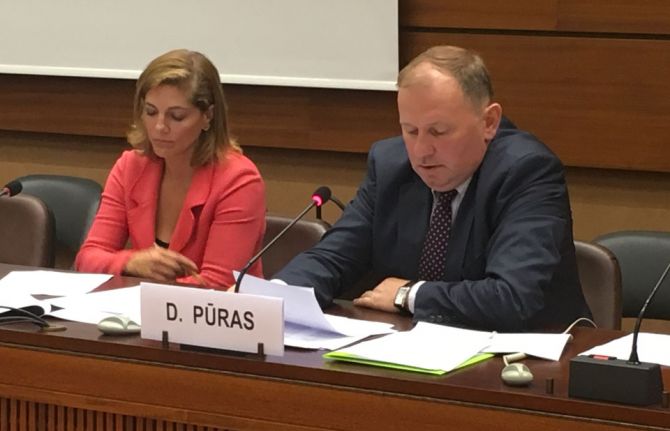
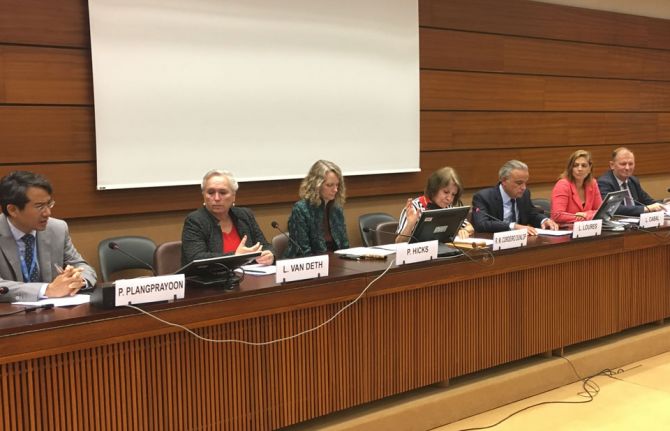
Update
Human rights—critical to ending the AIDS epidemic
28 September 2016
28 September 2016 28 September 2016At a meeting to discuss human rights and the 2016 Political declaration on Ending AIDS, panellists underscored the urgent need to protect services for women, girls, people with disabilities, migrants and displaced people. They commended the Political Declaration’s calls to integrate and promote key human rights programmes but also noted gaps and concerns, such as limited attention to the protection of key populations, including gay men and other men who have sex with men, sex workers and people who inject drugs.
The event, held on the 26 September, was hosted by the Permanent Missions to the United Nations in Geneva of Brazil, Colombia, Mozambique, Portugal and Thailand. Cosponsored by UNAIDS and the Office of the United Nations High Commissioner for Human Rights, the event took place on the margins of the 33rd session of the United Nations Human Rights Council in Geneva, Switzerland.
The Political Declaration provides a clear road map for ending the AIDS epidemic as a public health threat by 2030 and panel members urged United Nations Member States to implement their commitments to human rights in the context of ending AIDS. They also underlined that not only should human rights be central to new global efforts on AIDS, but that the Human Rights Council and other United Nations bodies must keep HIV consistently high on the human rights agenda.
Country representatives shared best practices in protecting human rights in the context of HIV, including Thailand’s efforts to reduce discrimination in health-care settings through routine training of health-care workers. Panellists also discussed the importance of the work carried out by civil society. They underscored the need for legal and regulatory barriers that restrict civil society engagement in the AIDS response to be removed and for predictable financing for civil society to be guaranteed.
Quotes
“The picture of AIDS today is that of discrimination, exclusion and violence that prevent people from accessing the services they need. We need to urgently move from the rhetoric of human rights to concrete actions to protect people who are left behind.”
“We must keep this issue on the agenda of the Human Rights Council and work as Member States to share best practices and ensure accountability for the effective implementation of human rights commitments in efforts to address the HIV epidemic.”
“I call for urgent action to protect civil society organizations, including those representing people living with HIV and other key populations, against restrictive laws and practices that hinder their work of supporting the response to HIV.”
“Stigma and discrimination continue to hamper efforts to ensure access to HIV testing, prevention and treatment services, with about 60% of people living with HIV coming to know of their diagnosis very late. The Ministry of Public Health is rolling out an accelerated system-wide stigma and discrimination reduction programme, with civil society and concerned communities committed and fully engaged.”
“I am very concerned by the huge gap between policies and practice. Civil society and communities play a critical role in making change happen and ensuring that HIV programmes work. Funding for civil society-led efforts and support to challenge the shrinking space for civil society are imperative.”



